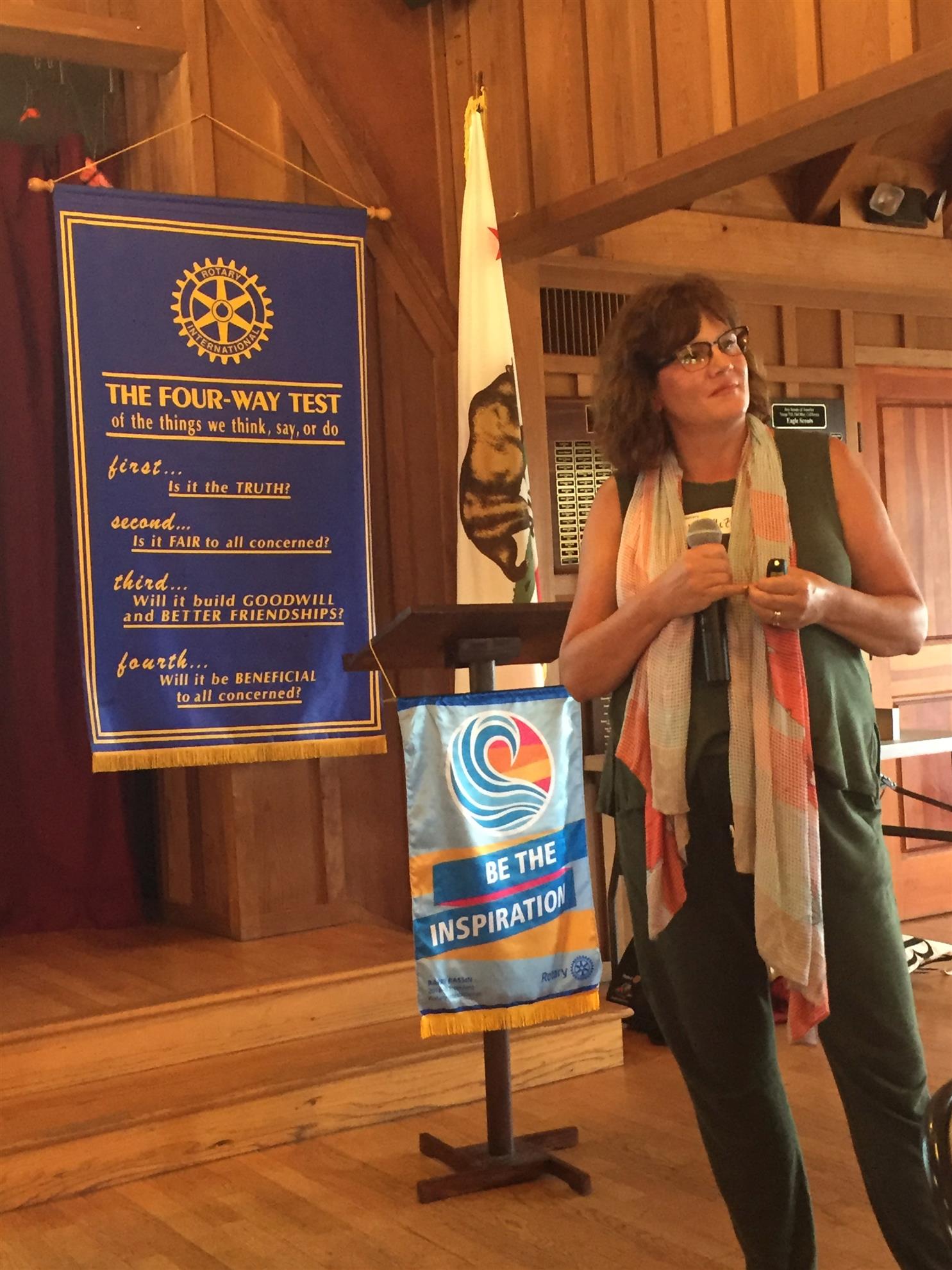
Michelle Zive listens to a member tell his story
Michelle Zive spent many years helping others build stronger bodies as a clinical dietician. She works for the Center for Community Health at University of California at San Diego as Principal Investigator for the Healthy Network of California that uses social media to encourage the adoption of healthy lifestyles. However, Michelle also has a lifelong love of learning and storytelling. More than 20 years after completing a Master’s in Nutritional Science, Michelle undertook PhD studies at University of San Diego to help others learn to tell stories that build trust and empathy and break down stereotypes and misconceptions.
One Tribe Connect grew out of her PhD studies. In her presentation at our September 20, 2018 meeting, Michelle shared a quote from Jonathan Gottschall’s book: The Storytelling Animal, which said: “We are, as a species, addicted to story. Even when the body goes to sleep, the mind stays up all night telling itself stories.” One Tribe Connect builds on this innate human desire to tell stories, and in the process promote cooperation among groups, develop social norms and shared beliefs that are integrated from multiple viewpoints, and transmit cultural knowledge between individuals.
During her presentation Michelle showed an excerpt from the TED talk, “The Danger of a Single Story” by author Chimamande Ngozi Adichie who cautioned that in showing a people as one thing and only one thing, that one thing is what they become. Thus, we must remember to engage with the entire story of a person, since a single story alone can be polarizing and robs people of dignity.
In her research during development of One Tribe Connect, Michelle considered these single stories, and strategies for instead hearing entire stories. For example, if she asked a middle-aged woman to describe a Millennial, she might say “someone who is bored, entitled, and in front on a screen all day”. Yet by bringing Millennials together with older women the stories that emerged provided a broader picture of both groups, and dispelled misperceptions.
Michelle’s talk prompted lively discussion among members who shared how their own biases and assumptions might have affected their interactions with others, including their own families. Although authentic storytelling can be challenging and reveal vulnerabilities, it is a powerful means for building understanding and empathy.